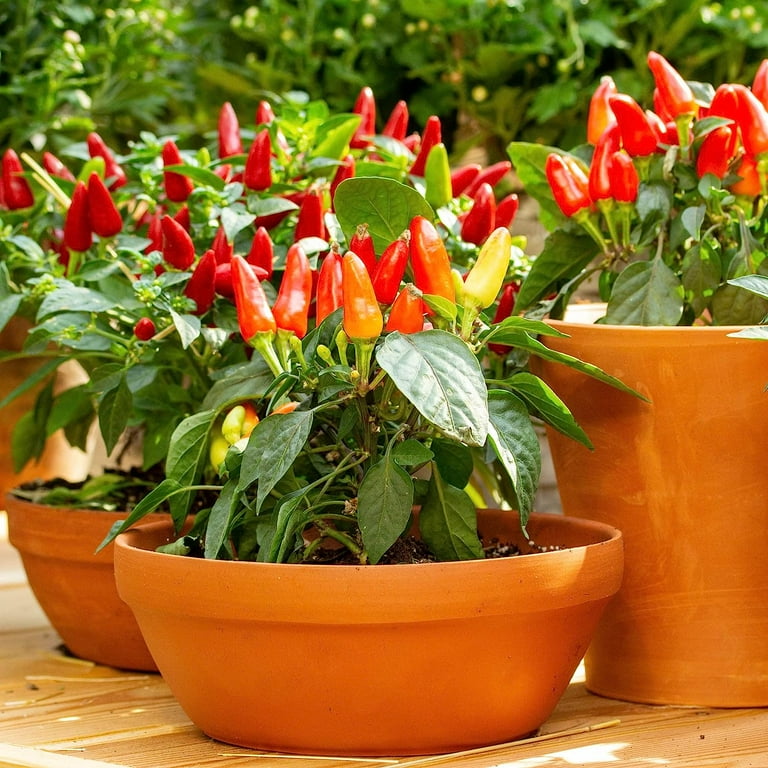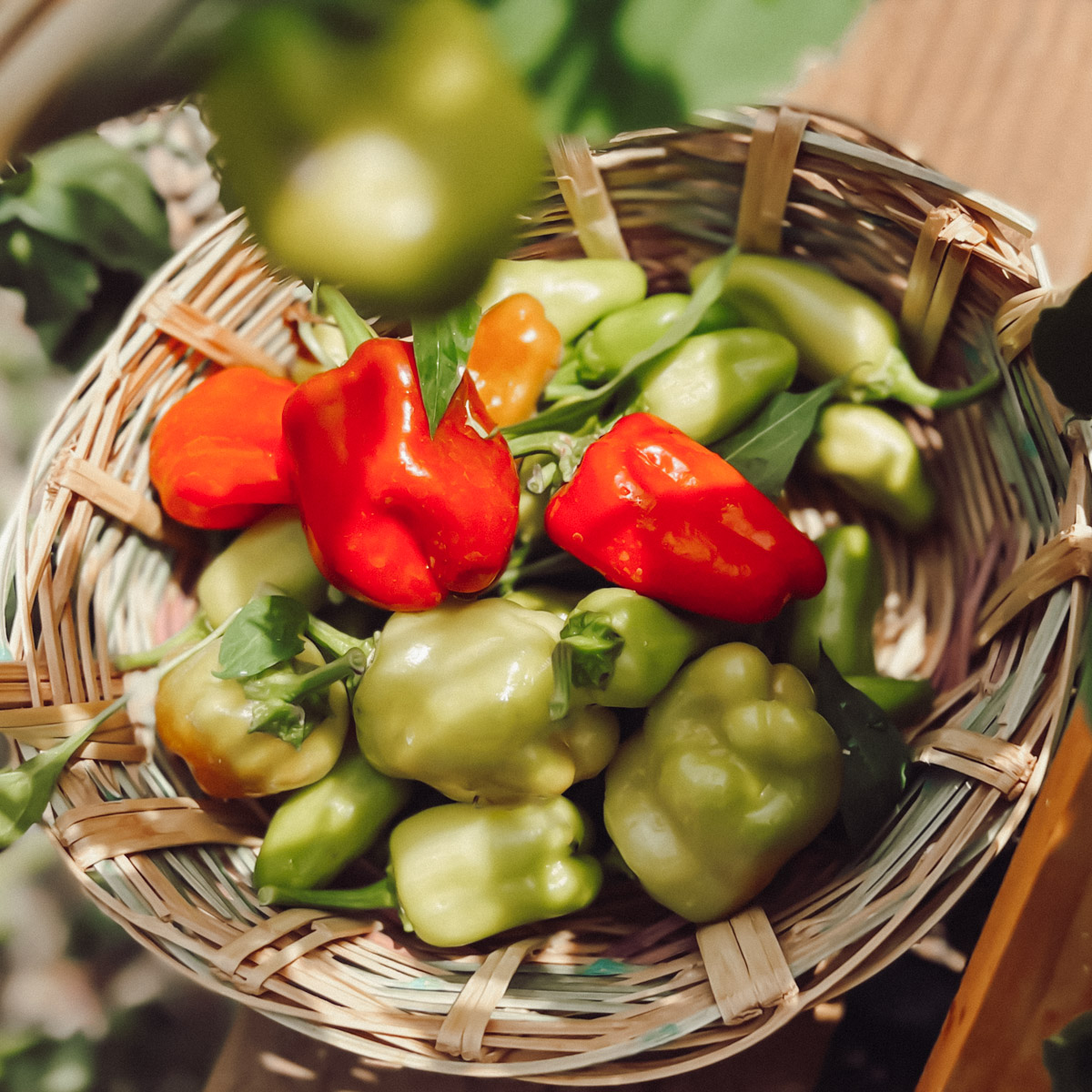Organic Vs. Synthetic Fertilizers: Which Is Best for Nurturing Healthy Pepper Plants?
In the world of supporting healthy pepper plants, the choice in between artificial and organic fertilizers stands as a pivotal choice with significant implications. While both alternatives goal to offer important nutrients to sustain plant development, the nuances of their effect on the soil, plant health, and the setting stimulate an argument that mirrors throughout the gardening community. Recognizing the distinct benefits and prospective challenges of each fertilizer type is vital for pepper cultivators looking for to enhance their yields while preserving a sustainable and eco-conscious method.
Benefits of Organic Fertilizers
Organic fertilizers use a sustainable and environmentally-friendly approach to beneficial pepper plants, offering essential nutrients without using synthetic chemicals. These natural fertilizers are originated from organic resources such as compost, manure, bone meal, and algae, advertising dirt health and biodiversity. Unlike synthetic fertilizers, organic choices release nutrients gradually, making certain a consistent and well balanced supply for pepper plants to flourish.
One substantial benefit of organic fertilizers is their ability to enhance dirt framework and water retention. By improving soil wellness, organic fertilizers advertise advantageous microbial activity, which assists in nutrient uptake by pepper plants. In addition, organic fertilizers minimize the threat of chemical run-off, protecting water sources from contamination and safeguarding the environment.
Additionally, natural plant foods add to long-term soil fertility by promoting the growth of valuable dirt organisms. These organisms aid break down raw material, releasing nutrients in a type that is quickly available to pepper plants. best fertilizers for peppers. By cultivating a healthy and balanced dirt ecosystem, organic fertilizers support sustainable pepper cultivation methods that benefit both plants and the atmosphere
Disadvantages of Synthetic Fertilizers
Synthetic fertilizers, in contrast to their organic counterparts, position different drawbacks when utilized to nourish pepper plants, affecting both plant health and wellness and environmental sustainability. One major drawback of synthetic plant foods is their propensity to seep nutrients from the dirt swiftly. This fast leaching can result in nutrition discrepancies in the soil, causing plants to deal with deficiencies or toxicities. In addition, artificial fertilizers can hurt useful soil organisms, such as earthworms and beneficial microorganisms, interfering with the dirt environment's equilibrium.
Moreover, the overuse of artificial plant foods can add to water contamination. Excess fertilizers not soaked up by plants can remove right into water bodies, causing eutrophication, where algae blooms deplete oxygen levels in the water, damaging marine life. Artificial fertilizers are generally derived from non-renewable resources, such as fossil gas, adding to carbon discharges and environmental deterioration during their production.
Nutrient Absorption Comparison
Efficient nutrient absorption plays a crucial function in the general wellness and development of pepper plants. When contrasting synthetic and organic plant foods in terms of nutrient absorption, organic plant foods have the benefit of providing a much more well balanced and slow-release resource of nutrients (best fertilizers for peppers). Organic fertilizers consist of a selection of macro and micronutrients that are not only helpful for the plants but likewise advertise healthy soil microbial task, which assists in nutrient uptake. On the various other hand, synthetic fertilizers commonly provide a quick release of nutrients, which can cause seeping and drainage, resulting in lower nutrient absorption prices by the plants.
Additionally, organic plant foods enhance soil framework and water retention ability, enabling pepper plants to access nutrients much more efficiently. This better dirt top quality helps with root development, enabling better nutrient absorption. Artificial plant foods, although originally improving plant growth due to their high nutrient concentrations, might prevent lasting nutrient absorption by derogatory soil health and wellness gradually.
Environmental Impact Considerations

On the other hand, synthetic fertilizers, although usually more focused and promptly offered to plants, can have harmful effects on the setting otherwise used effectively (best fertilizers for peppers). Their manufacturing needs high power inputs, bring about greenhouse gas exhausts and adding to environment change. The drainage of excess synthetic fertilizers can contaminate water resources, leading to eutrophication and hurting aquatic ecosystems.
Best Plant Food Practices for Peppers
To achieve this, it is vital to follow ideal plant food practices customized to the particular demands of pepper plants. One crucial practice is to carry out a soil examination before applying any fertilizers.
Another crucial practice is to fertilize pepper plants at the ideal time. Usually, peppers gain from obtaining plant food at growing and afterwards again when they start to flower. Over-fertilizing can bring about nutrient inequalities and damage the plants, so it is vital to comply with suggested application rates.
Furthermore, choosing a balanced plant food with an NPK ratio that suits pepper plants' demands is basic. Eventually, integrating artificial and natural plant foods carefully can assist nurture healthy and balanced pepper plants while decreasing environmental effect.
Verdict

Organic plant foods use an environmentally-friendly and lasting method to nourishing pepper plants, offering crucial nutrients without the use of artificial chemicals. Unlike artificial plant foods, natural choices launch nutrients gradually, ensuring a steady and balanced supply for pepper plants to grow.
Synthetic plant foods, in contrast to their organic counterparts, posture numerous drawbacks when used to nurture pepper plants, impacting both plant wellness and environmental sustainability. When contrasting artificial and natural fertilizers in my site terms of nutrient absorption, natural Check Out Your URL fertilizers have the benefit of offering a much more well balanced and slow-release source of nutrients.Furthermore, organic plant foods boost dirt structure and water retention capability, allowing pepper plants to access nutrients extra efficiently.